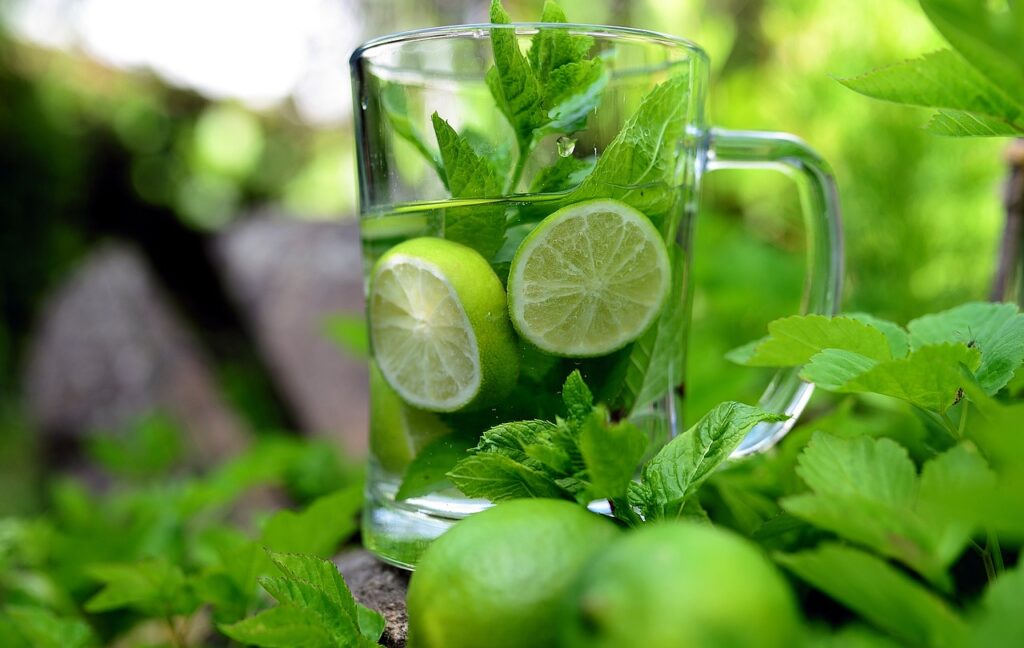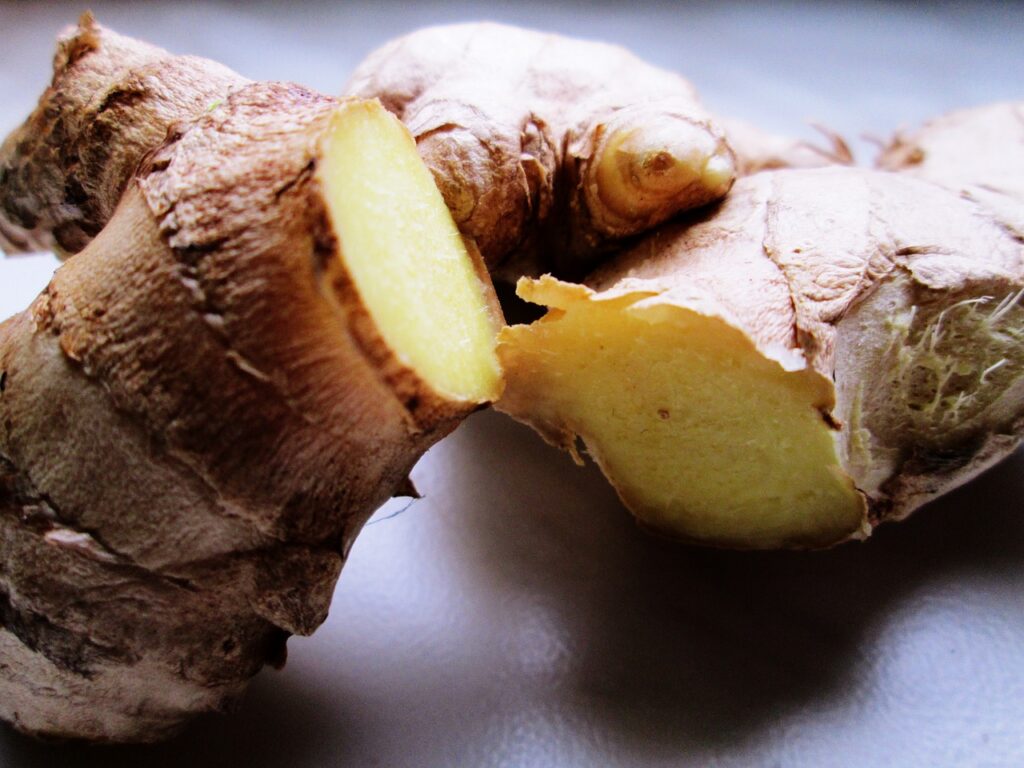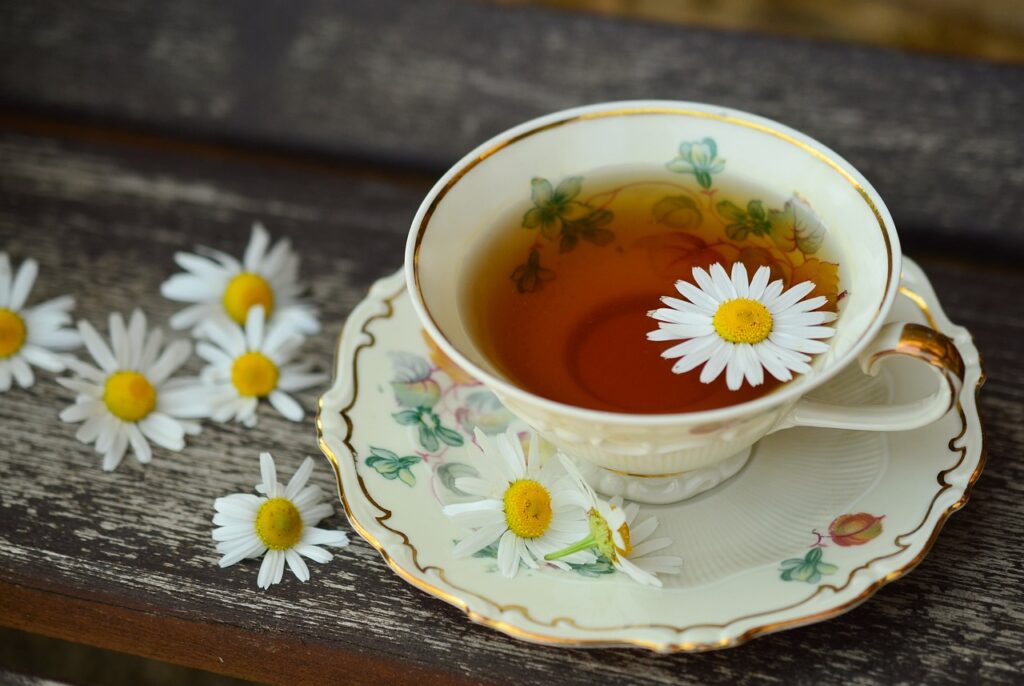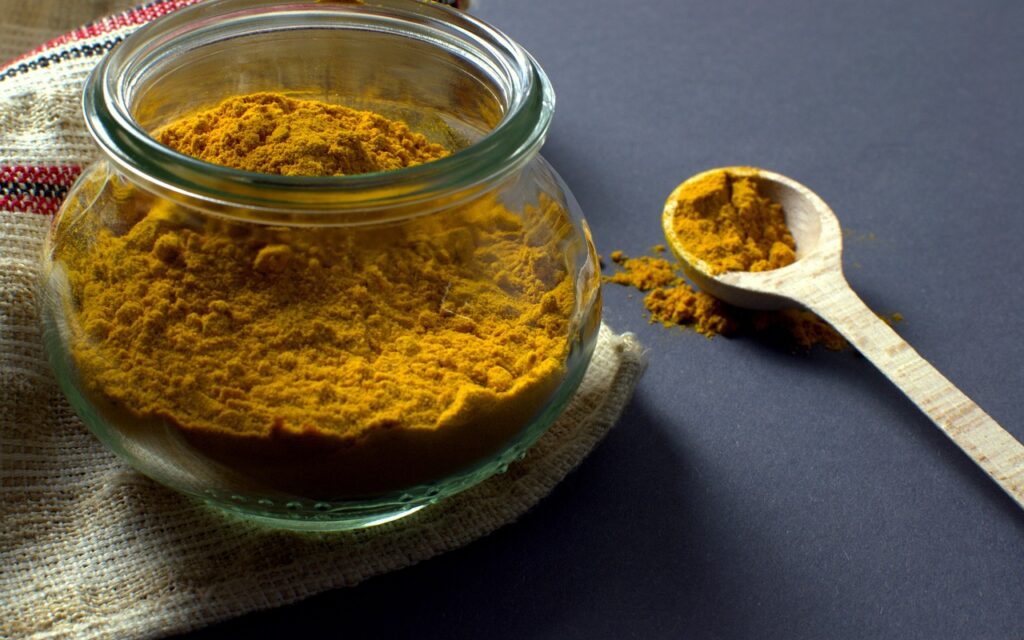The Connection Between Gut Health and Herbs
In a world where modern medicine reigns supreme, it’s easy to overlook the potent healing properties of herbs for gut health. But for those who prefer natural remedies, herbs can be a true savior, especially when it comes to digestion and gut health.
Your gut, often referred to as your second brain, plays a pivotal role in your overall well-being. So, give it the love it deserves with the power of herbs!

Get ready for an herbal journey that will leave your gut smiling and your taste buds singing!
The Top 5 Herbs for Gut Health
- Peppermint
- Ginger
- Chamomile
- Fennel
- Turmeric
Embrace the world of herbs and discover the magic they hold for your gut. Your second brain will be all smiles, and you’ll be feeling fantastic from the inside out!
First, let’s talk a bit about the gut…
The gut, or gastrointestinal (GI) tract, is often referred to as the body’s “second brain” due to its astonishing complexity and the vital role it plays in our overall health.
The gut extends from the mouth to the anus and includes various organs, such as the stomach, small intestine, large intestine, and more.
It’s responsible for several essential functions that are instrumental to our well-being:
Digestion:
The primary function of the gut is to break down the food we consume into nutrients, which our body can then absorb and utilize for energy, growth, and repair. This process involves the release of enzymes, acids, and various digestive juices to ensure that the food we eat is converted into essential nutrients like proteins, carbohydrates, fats, vitamins, and minerals.
Absorption:
After digestion, the small intestine absorbs these nutrients into the bloodstream, where they are transported to different parts of the body to support its functions. This is why the health of the gut lining is crucial – it acts as a barrier that selectively allows nutrients to enter while keeping harmful substances out.
Immune Function:
The gut houses a significant portion of our immune system. It’s home to trillions of microorganisms, collectively known as the gut microbiota, which help protect against harmful pathogens. A healthy gut microbiome is essential for a robust immune response, as it can recognize and defend against invaders effectively.
Metabolism:
The gut plays a role in regulating metabolism and energy balance. The gut microbiota is involved in breaking down complex carbohydrates, which can influence how our body stores and uses energy. An imbalance in the gut microbiome has been associated with metabolic disorders, including obesity.
Synthesis of Nutrients and Hormones:
Certain vitamins (like vitamin K and some B vitamins) are synthesized by beneficial gut bacteria. Additionally, the gut produces hormones that play a role in appetite regulation, mood, and even bone health.
Waste Elimination:
The large intestine is responsible for the absorption of water from the remaining indigestible food, which results in the formation of stool. It’s also involved in the elimination of waste from the body, helping maintain a healthy balance of fluids.
The Top 5 Herbs for Gut Health Explained
1. Peppermint – The Gut’s Best Friend
If your stomach is throwing a tantrum, peppermint is here to save the day. This fragrant herb is a staple in the world of digestive health, thanks to its soothing and cooling properties.
Peppermint can work wonders for those suffering from indigestion, gas, or bloating. So, whether it’s a post-meal peppermint tea or a sprig of fresh peppermint leaves in your salad, this herb can help calm the chaos in your tummy.
Pro-tip: Feeling adventurous? Try making your own peppermint-infused water by steeping a few fresh leaves in a glass of cold water. It’s like nature’s own mouthwash for your insides!

2. Ginger – The Digestive Dynamo
Ginger is the charismatic hero of the herb world when it comes to digestive health.
This knobbly root has been used for centuries to alleviate various stomach troubles. It’s a natural anti-nausea remedy and can help with motion sickness, morning sickness (no, not the one involving baby bumps), and even post-surgery nausea.
But ginger’s superpower doesn’t end there; it’s also an anti-inflammatory agent, perfect for calming an irritated gut.
Incorporating ginger into your diet is easy – you can use it in your cooking or brew a zesty ginger tea to kickstart your digestion.
Pro-tip: Grate some fresh ginger into a stir-fry, and you’ll not only add a burst of flavor but also improve your gut health in the process.

3. Chamomile – The Bedtime Buddy
While chamomile is famous for its sleep-inducing qualities, it’s also a silent warrior for gut health.
The calming and anti-inflammatory effects of chamomile can ease indigestion, cramps, and even symptoms of irritable bowel syndrome (IBS). It’s like a gentle lullaby for your stomach, coaxing it into a peaceful slumber.
Enjoy a warm cup of chamomile tea before bedtime to promote better digestion and ensure a night of sweet dreams. Plus, the act of sipping on a cup of fragrant chamomile tea can be a delightful evening ritual.
Pro-tip: If you want to double down on the soothing power, add a bit of honey or a dash of lemon to your chamomile tea. It’s like a hug for your insides!

4. Fennel – The Bloating Buster
Fennel is a curious-looking herb with an uncanny ability to beat bloating and gas. It contains compounds that relax the muscles in your digestive tract, making it easier for gas to pass through.
Additionally, fennel seeds are a great source of fiber, aiding in regular bowel movements.
For a quick and delicious remedy for bloating, chew on a handful of fennel seeds after a meal.
Alternatively, you can brew fennel tea by steeping the seeds in hot water for a few minutes.
Fennel not only helps your digestion but also leaves your breath minty fresh – a win-win!
Pro-tip: Fennel seeds can be sprinkled over your salads or incorporated into your cooking, adding a subtle, anise-like flavor that’s simply delightful.

5. Turmeric – The Golden Elixir
Our list wouldn’t be complete without mentioning the golden child of herbs – turmeric. This vibrant spice, known for its rich, earthy flavor and striking color, is a powerhouse of anti-inflammatory and antioxidant properties.
It can help soothe the lining of your stomach and aid in digestion by increasing bile production.
Turmeric is incredibly versatile – you can sprinkle it on your dishes, stir it into soups, or create a golden latte for a daily dose of this wonder herb. Its warm, comforting taste is sure to keep your gut and taste buds happy.
Pro-tip: Enhance turmeric’s bioavailability by pairing it with a pinch of black pepper – it’s like giving your digestive system a turbo boost!

Your gut health is a vital component of your overall well-being!
Why It’s Vital to Take Care of Your Gut
The gut’s role in our overall health cannot be overstated. Here are some key reasons why it’s vital to take care of your gut:
Digestive Health:
A healthy gut ensures efficient digestion and absorption of nutrients. Problems with digestion can lead to nutrient deficiencies, malabsorption, and various gastrointestinal issues, such as irritable bowel syndrome (IBS), constipation, and diarrhea.
Immune Support:
The gut microbiota and the gut-associated lymphoid tissue are critical components of our immune system. A well-balanced gut microbiome can help protect against infections and autoimmune disorders.
Mood and Mental Health:
The gut-brain connection is a fascinating area of research. It’s believed that the gut can influence mood, and an unhealthy gut may be linked to mood disorders like anxiety and depression.
Metabolic Health:
The gut plays a role in regulating metabolism, and an imbalance in the gut microbiota has been associated with obesity and metabolic disorders. Taking care of your gut can help maintain a healthy weight and metabolic profile.
Skin Health:
Skin conditions like acne, eczema, and psoriasis may be influenced by the health of your gut. A well-functioning gut can help reduce inflammation and promote healthier skin.
Nutrient Absorption:
A compromised gut can lead to malnutrition and nutrient deficiencies. By maintaining a healthy gut, you ensure that your body can absorb the essential nutrients it needs to thrive.
So, as you can see, the gut is a powerhouse of functions that have far-reaching implications for your overall well-being.
By incorporating herbs and natural remedies into your lifestyle, you can nourish and support your gut, maintaining its health and ensuring that it can perform its functions optimally.
A healthy gut truly is the foundation of good health, and it’s well worth the effort to take care of it.
Whether you choose peppermint, ginger, chamomile, fennel, or turmeric, these herbs have been celebrated for centuries for their ability to soothe, heal, and restore balance.
So, the next time you’re feeling a bit “off” in the stomach department, consider turning to the power of herbs.
